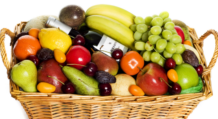A K-State meat scientist is looking for ways to improve bacon’s shelf life for restaurants.
MANHATTAN, Kan. – Just when you thought it couldn’t get any better, improved bacon could soon be on its way. Bacon is one of the most popular cuts of pork, and finding a way to deliver restaurants and consumers an even better product is the focus of research at Kansas State University.
Terry Houser, an associate professor in the K-State Department of Animal Sciences and Industry, is exploring what level of pork belly fat saturation will result in longer shelf life and better flavor. Currently, bacon used in the food service sector, which includes restaurants, is stored frozen but is not vacuum packaged, he said. This method can lead to off-flavors in meat with higher levels of unsaturated fat.
Houser and his team are studying the influence a pig’s iodine level—a measure of fat saturation—has on shelf life value of bacon. He said if bacon fat is too unsaturated, it could cause the fat to be soft and undesirable to the consumer. Also, unsaturated fat causes problems with slicing the bellies once they are cooked and smoked.
The theory behind this research, Houser said, is that pigs with relatively high iodine levels result in problems with bacon quality from those pigs’ bellies.
“Pigs with relatively high iodine levels have a more unsaturated fat in the belly, which means those bellies will be softer and more prone to increased rates of lipid oxidation,” Houser said.
Increased rates of lipid oxidation have been linked to greater occurrence of rancid flavors in meat products, he explained. Additionally, soft bellies are challenging to slice with commercial meat processing equipment and may result in lower slicing yields for the bacon manufacturer.
“We wanted to see what the effects freezing has on lipid oxidation, or off-flavor development in those bacon products,” Houser said. “The results showed us that bacon is very unstable once it is in a frozen storage, in a HRI (hotel, restaurant and institutional) type of packaging system.”
Houser and his team’s on-going research to create better bacon will explore ways to identify bacon that is higher in unsaturated fat and how to make the fat more stable in frozen storage.
More references related to meat quality and safety can be found at your local extension office or online on the K-State Research and Extension website.




